The recent rains in India’s IT hub, Bengaluru, created havoc on the city infrastructure, impacting the lives of millions of its habitants. The heavy rain in late August and September led to severe flooding in many parts of Bengaluru and brought normal life to a standstill. Several parts of the city and its suburban areas reported waterlogging after heavy rains lashed the city.
Various images and videos became viral on social media of inundated roads, traffic snarls, people walking knee-deep in water, water inside houses, vehicles submerged, and commuters crossing the water-clogged street on tractors & cranes, among others. If this was not enough, drinking water shortages and power failures were also reported in many localities.
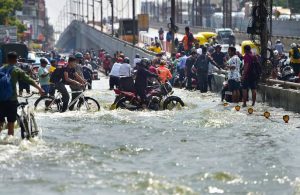
Many netizens and city residents expressed their disgruntlement about the state of urban infrastructure in a city that is one of the major economic drivers of India.
While frustrations are obvious, the situation is no different in other Indian cities when climatic extreme event strikes. The infrastructure is ill-equipped to handle the vagaries of nature.
Hyderabad-based minister KT Rama Rao made a poignant point on Twitter “No Indian city (including my state’s capital city) today is immune to the disastrous consequences of climate change If India has to continue to grow, we need well-laid, concerted capital allocations of Union & State Govts combined into radical improvement in infrastructure“
Minister is right, if the rains in 2022 crippled the city of Bengaluru, similar events have happened in all urban centers in India in the recent past – Hyderabad in 2020, Chennai in 2015, and Mumbai in 2017 – to name a few. While the disasters in big cities grab the headlines, things are even more devastating in underdeveloped regions of the country.
However, for the purpose of this article, we will stick to the infrastructure issues in big Indian cities and the lessons we can take to prevent future disasters.
Many factors have led to the chaos – lack of effective stormwater drainage, encroachment on natural environments, urbanization, population growth, inefficient town planning, and waste clogging the sewage lines, among others.
Given that climate change is a reality, extreme weather events will only become more frequent and intense. It is pertinent that town planners work on structural reforms to withstand these events and become more resilient.
Here are some lessons to prevent future flooding.
Upgrading the Civic Infrastructure
Whether it is Bengaluru, Hyderabad, Chennai, or Mumbai, a common problem across big Indian cities is encroachment, poor infrastructure, and substandard drainage systems.
As cities grow in size and population, the water bodies and the stormwater drains that link them get obstructed or encroached upon, which impedes the natural flow of water. In case of lighter rains, this might not a major problem, however, if there are incessant rainfalls, it causes flooding and infrastructure collapse.
As an immediate fix, city planners and municipalities should immediately make sure to remove any encroachment of drains and wetlands.
The next step to prevent future flooding is to bring structural changes in the design of rainwater pipes, drains, and storage structures that can handle extreme rains.
Protecting and Conserving natural aquifers
When we discuss infrastructure-related reforms, the focus is mostly on man-made structures, but we should not neglect the role of our wetlands, lakes, trees, and parks play. These natural systems are an integral part of urban infrastructure as they allow vertical water to flow into the earth, that not only prevents flooding but also recharges ground water tables.
Managing Waste disposal
While one part of the obstruction of the drainage system is civil construction, the other part is inefficiencies in waste management. The sustained flow of untreated sewage, effluents, building debris, and plastic into stormwater pipelines, aggravates the problem of water clogging.
It is important that municipalities make sure that inlets and outlets of the drainage system are free from any obstruction. The sanitation workers should be equipped with the necessary resources to keep the city clean.
Impose penalties on defaulters
Many times it is found that encroachers are people who are influential or have the financial muscle. To restrict and prevent any illegal intrusion, strict penalties should be imposed on defaulters.
Further dumping of any waste should be punished and dealt with instantly.
Future-proofing in a Carbon neutral Economy
Ironically, climate change is also propelling a shift to newer kinds of infrastructure like solar and wind energy, electric vehicles, green hydrogen, etc. These are relatively new technologies and we don’t know the impact they might have when an extreme disaster strikes in the future.
Let us take a hypothetical example, if the city of Mumbai is entirely running on renewable energy and if there is a cyclone. The weather will not only prevent the generation of additional electricity but could also damage the grid or distribution. Imagine the economic and social consequences if India’s financial capital plunges into darkness for a few nights.
We need an energy system that is powered by solar and wind but it should be capable to deliver power even if there are interruptions caused due to climatic conditions.
Wrapping Up
With the intensification of our weather systems due to climate change becoming a harsh reality, it is likely that heavy rains will become a common occurrence. It is critical that our town planners take cognizance of this and reimagine the way the city is designed and developed.
If we have to prevent future flooding, the state governments have to relook at the existing infrastructure, identify the gaps and make provisions for large-scale changes.
Having said that, even civil society has a role to play, by questioning the government, reporting the malpractices, and using the infrastructure appropriately.

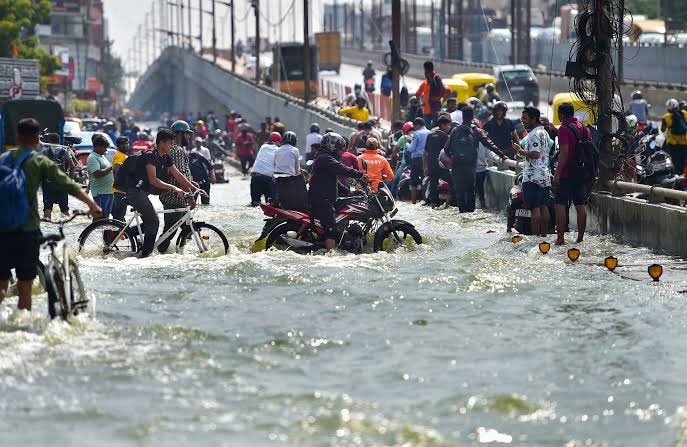
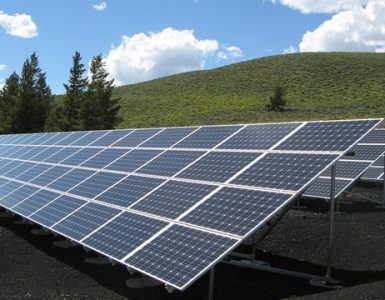
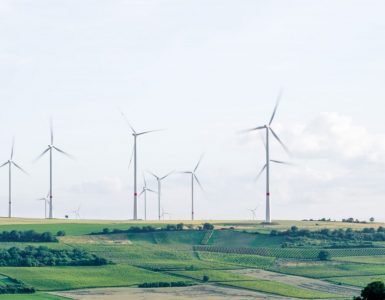
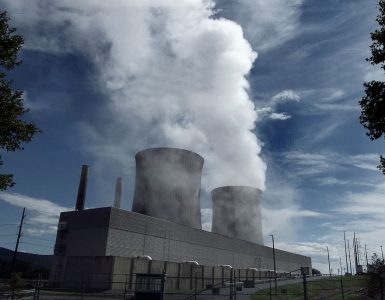

Add comment